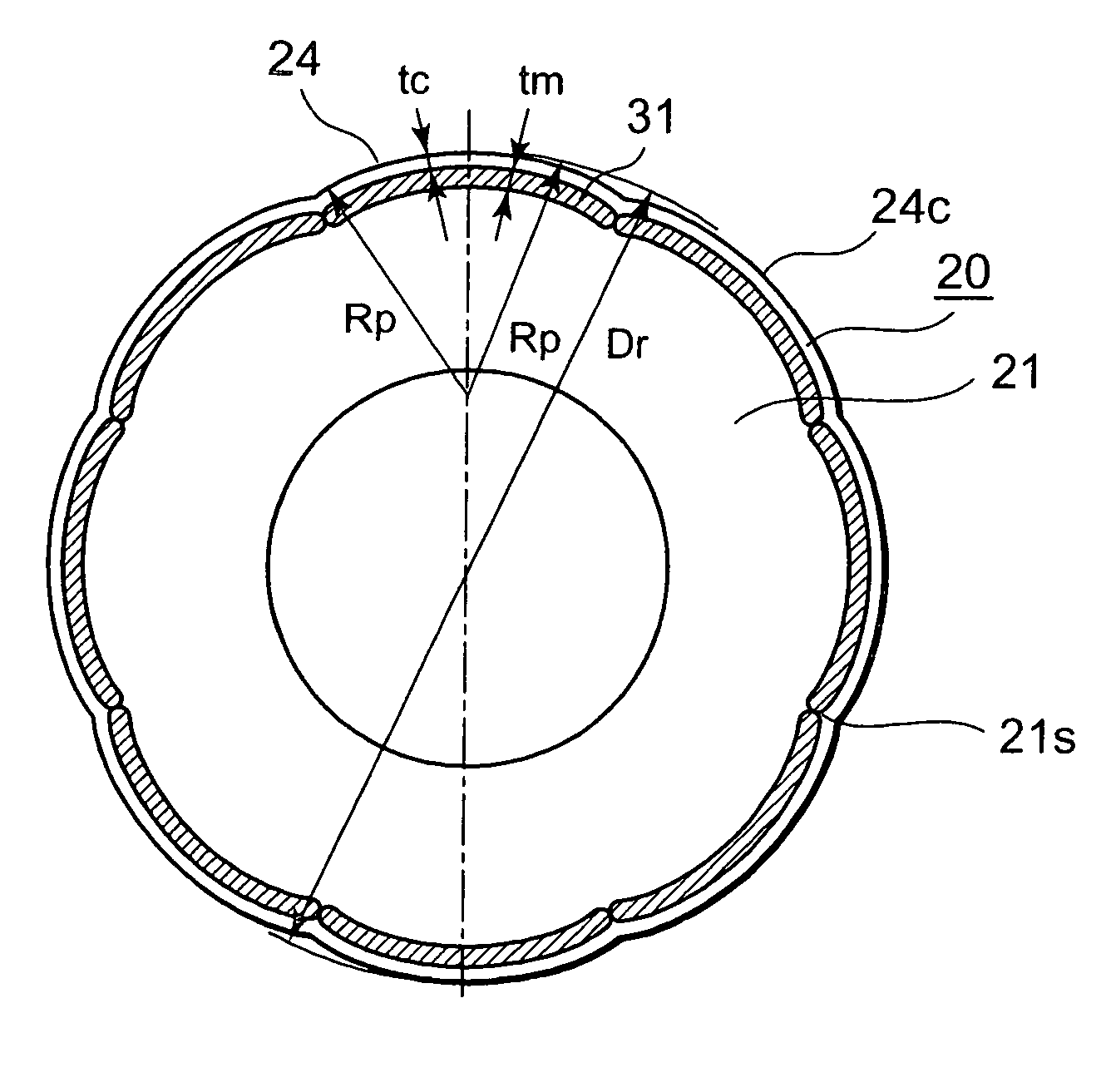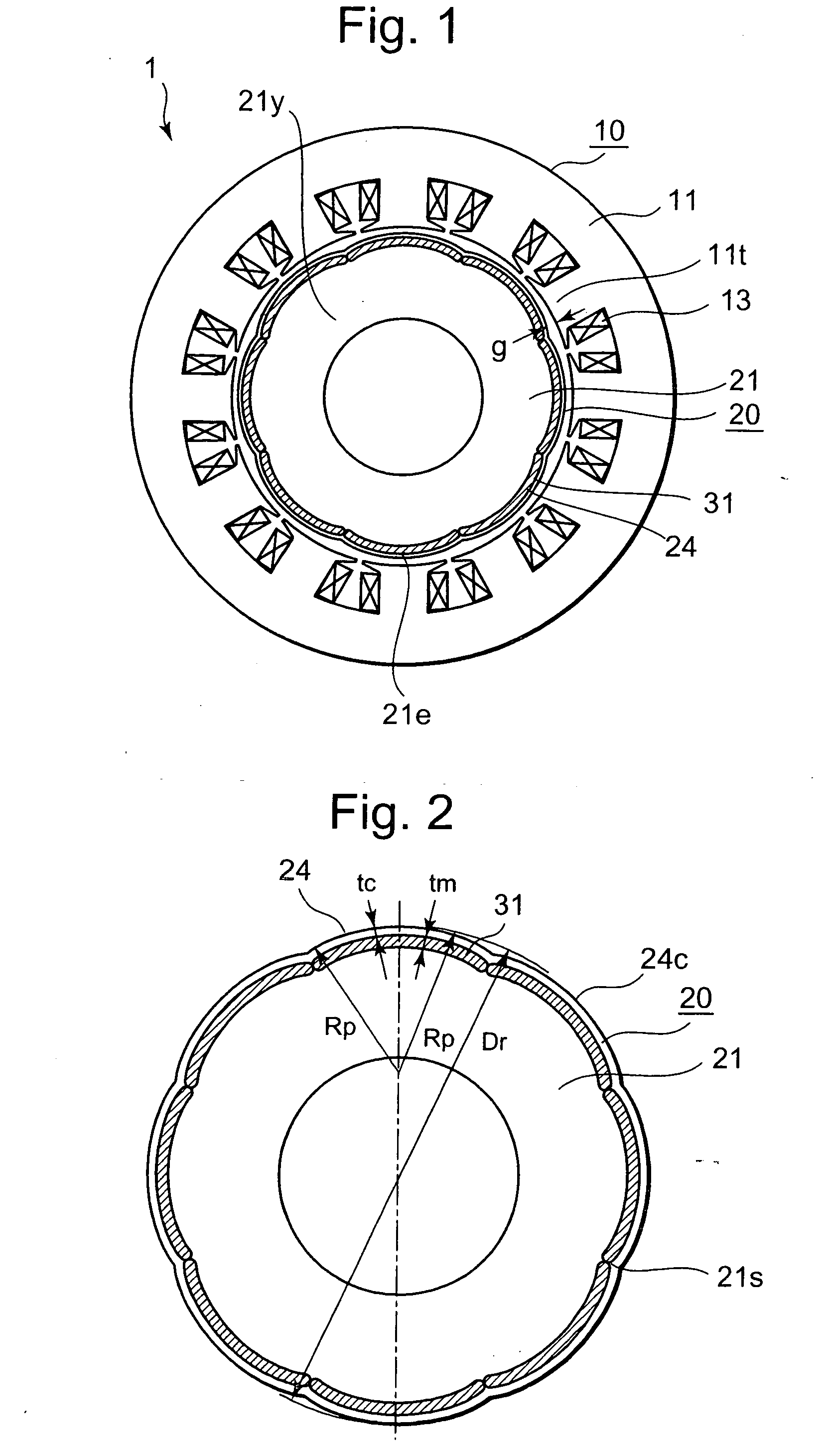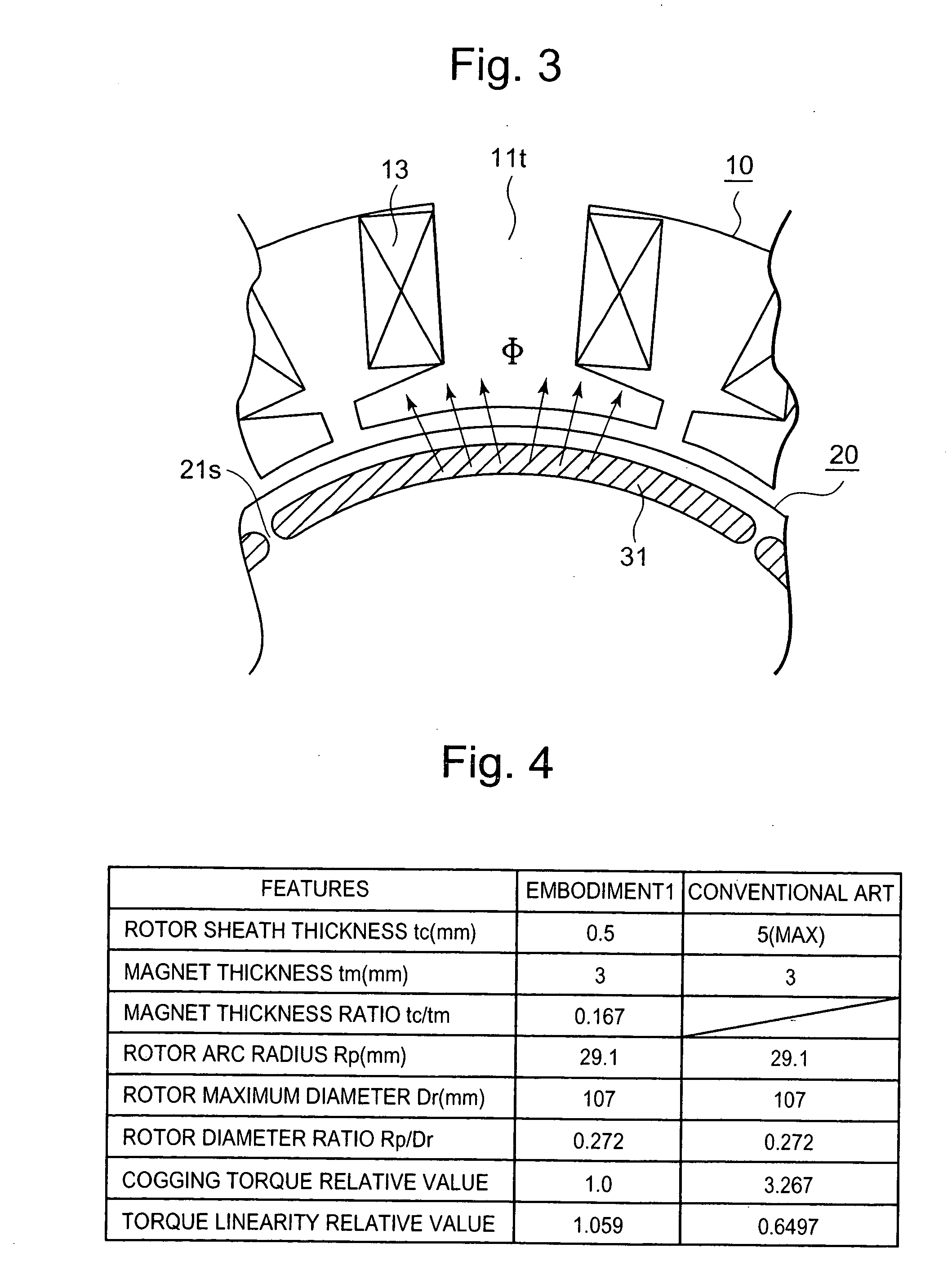Permanent magnet type motor
a permanent magnet, permanent magnet technology, applied in the direction of dynamo-electric machines, magnetic circuit rotating parts, magnetic circuit shape/form/construction, etc., can solve the problems of increasing the size of the torque linearity, increasing the complexity of the structure, and reducing the cogging torque
- Summary
- Abstract
- Description
- Claims
- Application Information
AI Technical Summary
Benefits of technology
Problems solved by technology
Method used
Image
Examples
embodiment 1
[0029] An embodiment of the present invention will be described using FIG. 1 through FIG. 3. FIG. 1 is a cross-sectional diagram of a permanent magnet motor according to the embodiment of the present invention, FIG. 2 is a cross-sectional diagram of a rotor in the permanent magnet motor illustrated in FIG. 1, and FIG. 3 is an enlarged partial cross-sectional diagram illustrating magnetic flux flow from the rotor to a stator in the permanent magnet motor illustrated in FIG. 1.
[0030] In FIG. 1 and FIG. 2, the permanent magnet motor 1 includes: a stator 10 composed of a stator iron core 11 made by die-cutting thin electromagnetic steel sheets, and by laminating the electromagnetic steel sheets, and having stator coils 13 wound around twelve salient poles 1 it; and an eight-pole rotor 20 having permanent magnets 31. The permanent magnet motor is configured so that the number of poles of the rotor 20 is 2n, and the number of salient poles lit of the stator 10 is 3n, where n is a positiv...
embodiment 2
[0057] Another embodiment of the present invention will be described according to FIG. 8. FIG. 8 is an enlarged partial cross-sectional diagram of the outermost portion of the rotor according to the embodiment of the invention.
[0058] There is a maximum rotating velocity as an important characteristic of the permanent magnet motor, other than the cogging torque and the torque linearity. The reason is that, if the maximum rotating velocity is raised, a machine driven by the motor can be operated in high speed, so that productivity can be enhanced.
[0059] However, as illustrated in FIG. 8, in the permanent magnet motor in which magnet slots 22 are provided in the rotor 20, and the permanent magnets 31 are inserted into the magnet slots 22 and fixed by adhesive agents or the like, if the maximum rotating velocity is raised, the stress concentrates in the corner portions at both ends of the magnet slots 22, whereby fixing the permanent magnets 31 can be adversely affected.
[0060] Theref...
PUM
 Login to View More
Login to View More Abstract
Description
Claims
Application Information
 Login to View More
Login to View More - R&D
- Intellectual Property
- Life Sciences
- Materials
- Tech Scout
- Unparalleled Data Quality
- Higher Quality Content
- 60% Fewer Hallucinations
Browse by: Latest US Patents, China's latest patents, Technical Efficacy Thesaurus, Application Domain, Technology Topic, Popular Technical Reports.
© 2025 PatSnap. All rights reserved.Legal|Privacy policy|Modern Slavery Act Transparency Statement|Sitemap|About US| Contact US: help@patsnap.com



